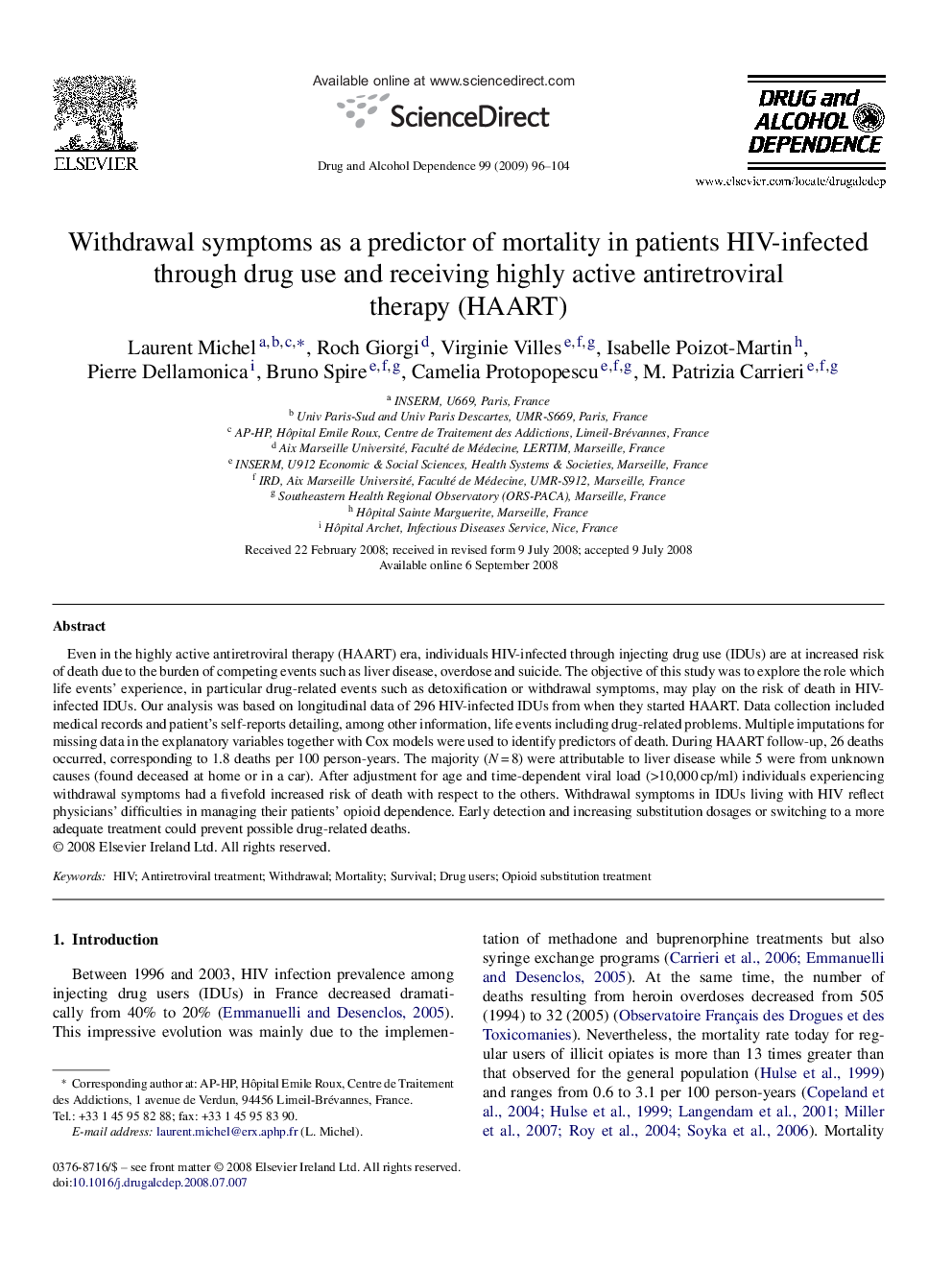| Article ID | Journal | Published Year | Pages | File Type |
|---|---|---|---|---|
| 7509369 | Drug and Alcohol Dependence | 2009 | 9 Pages |
Abstract
Even in the highly active antiretroviral therapy (HAART) era, individuals HIV-infected through injecting drug use (IDUs) are at increased risk of death due to the burden of competing events such as liver disease, overdose and suicide. The objective of this study was to explore the role which life events' experience, in particular drug-related events such as detoxification or withdrawal symptoms, may play on the risk of death in HIV-infected IDUs. Our analysis was based on longitudinal data of 296 HIV-infected IDUs from when they started HAART. Data collection included medical records and patient's self-reports detailing, among other information, life events including drug-related problems. Multiple imputations for missing data in the explanatory variables together with Cox models were used to identify predictors of death. During HAART follow-up, 26 deaths occurred, corresponding to 1.8 deaths per 100 person-years. The majority (NÂ =Â 8) were attributable to liver disease while 5 were from unknown causes (found deceased at home or in a car). After adjustment for age and time-dependent viral load (>10,000Â cp/ml) individuals experiencing withdrawal symptoms had a fivefold increased risk of death with respect to the others. Withdrawal symptoms in IDUs living with HIV reflect physicians' difficulties in managing their patients' opioid dependence. Early detection and increasing substitution dosages or switching to a more adequate treatment could prevent possible drug-related deaths.
Keywords
Related Topics
Life Sciences
Neuroscience
Behavioral Neuroscience
Authors
Laurent Michel, Roch Giorgi, Virginie Villes, Isabelle Poizot-Martin, Pierre Dellamonica, Bruno Spire, Camelia Protopopescu, M. Patrizia Carrieri,
